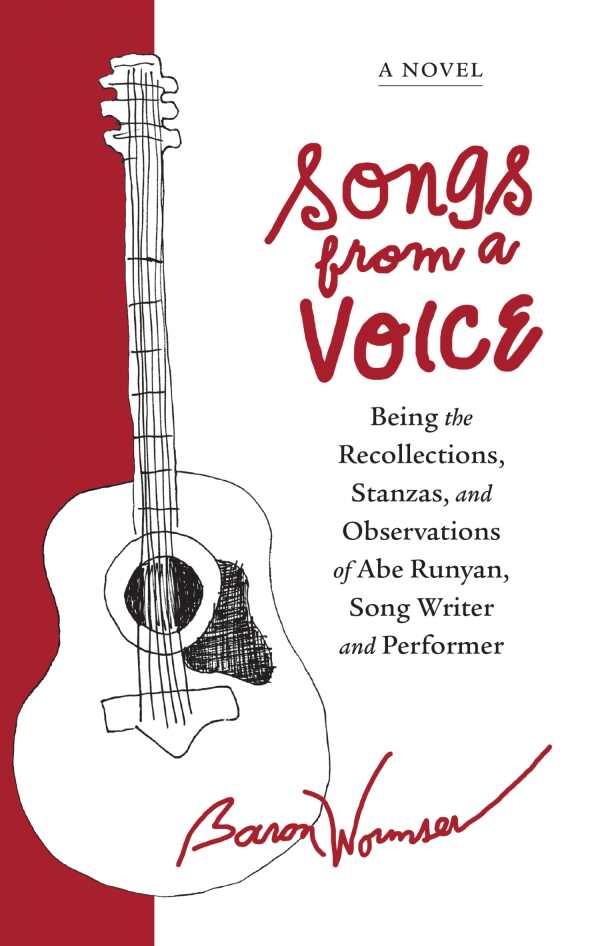Songs from a Voice
Being the Recollections, Stanzas and Observations of Abe Runyan, Songwriter and Performer
Based on the early life of Bob Dylan, Baron Wormser’s Songs from a Voice is a meditation on the nature of poetry and identity in the evolving culture of America’s mid-twentieth century.
Abe grows up in lower middle class Jewish family in rural Minnesota. He rejects the proposed purpose of school and work, preferring to immerse himself in blues and folk and the emerging genre of rock music. He spends more time at the jukebox than he does with his family, and nowhere more than in his own head. His observations, collected in vignette-like chapters, detail the landscape of songwriting and performing, individuality and the collective morality, and the steadfast ideologies of the American Midwest.
As he navigates what he sees as the meaninglessness of a life lived in the status quo, Abe experiments with ways of searching for his own identity. He’s told that he’s a failure if he doesn’t do well in school, “make a life for himself” with a steady job, and start a family. When he discovers sunglasses, he wears them indoors and out, and he sees each new successful rock musician as a shift toward America’s “great awakening.”
Abe’s own music isn’t about defining meaning; instead, he identifies the nonsense of social niceties and suggests that nihilism is realistic. His interrogations of American culture, both through snippets of poetry and in his journal-entry-like chapters, are both lyrical and poignant. Rhythm speaks to the body, he says: people can’t help tapping their toes along to a good blues tune. Rhyme, he claims, works to answer the great question that poetry asks: “What does one thing have to do with another?”
Songs from a Voice dramatizes a rebellious musician’s life with observations that are both stark and striking.
Reviewed by
Aimee Jodoin
Disclosure: This article is not an endorsement, but a review. The publisher of this book provided free copies of the book to have their book reviewed by a professional reviewer. No fee was paid by the publisher for this review. Foreword Reviews only recommends books that we love. Foreword Magazine, Inc. is disclosing this in accordance with the Federal Trade Commission’s 16 CFR, Part 255.

